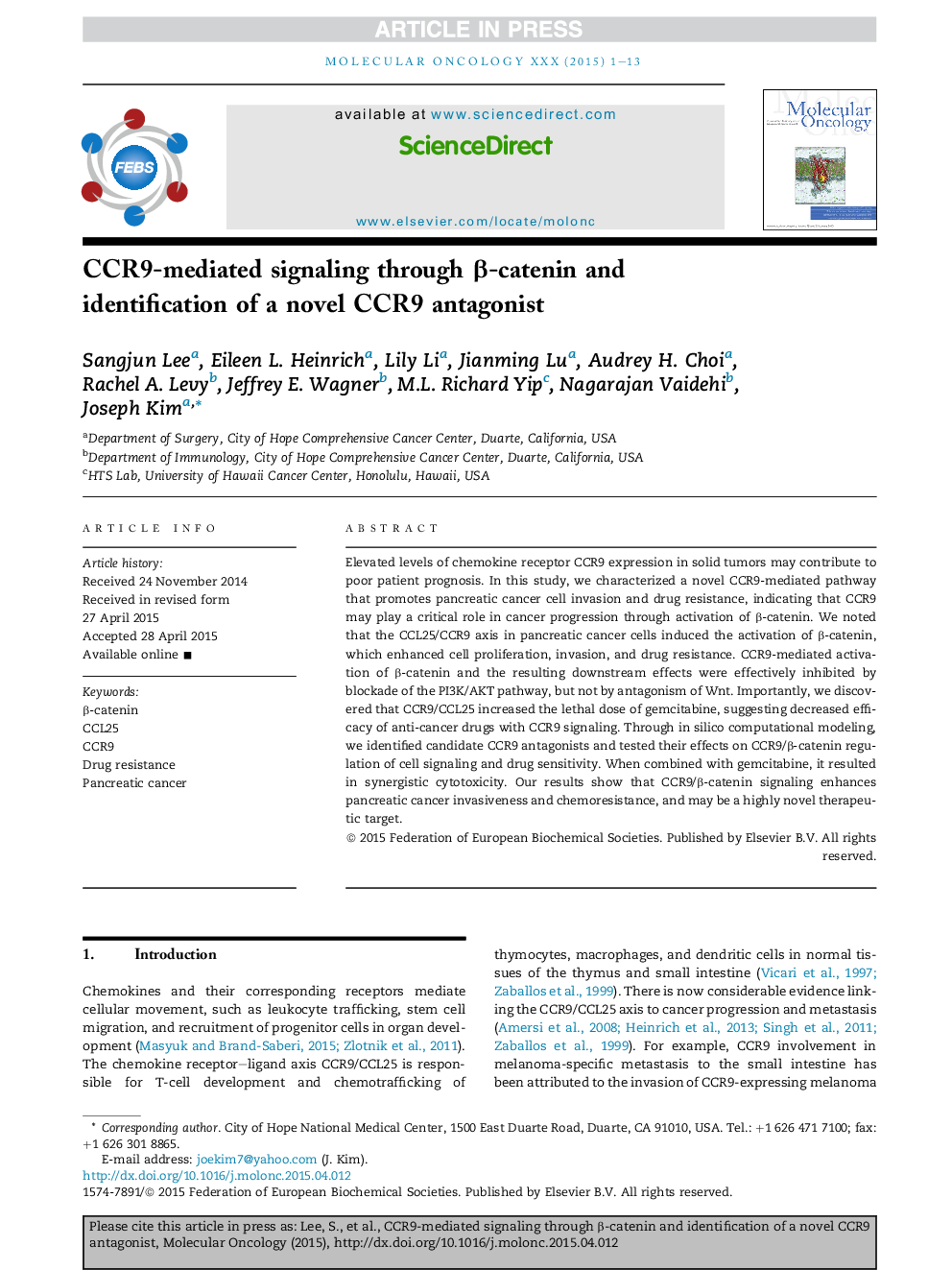| Article ID | Journal | Published Year | Pages | File Type |
|---|---|---|---|---|
| 10914703 | Molecular Oncology | 2015 | 13 Pages |
Abstract
Elevated levels of chemokine receptor CCR9 expression in solid tumors may contribute to poor patient prognosis. In this study, we characterized a novel CCR9-mediated pathway that promotes pancreatic cancer cell invasion and drug resistance, indicating that CCR9 may play a critical role in cancer progression through activation of β-catenin. We noted that the CCL25/CCR9 axis in pancreatic cancer cells induced the activation of β-catenin, which enhanced cell proliferation, invasion, and drug resistance. CCR9-mediated activation of β-catenin and the resulting downstream effects were effectively inhibited by blockade of the PI3K/AKT pathway, but not by antagonism of Wnt. Importantly, we discovered that CCR9/CCL25 increased the lethal dose of gemcitabine, suggesting decreased efficacy of anti-cancer drugs with CCR9 signaling. Through in silico computational modeling, we identified candidate CCR9 antagonists and tested their effects on CCR9/β-catenin regulation of cell signaling and drug sensitivity. When combined with gemcitabine, it resulted in synergistic cytotoxicity. Our results show that CCR9/β-catenin signaling enhances pancreatic cancer invasiveness and chemoresistance, and may be a highly novel therapeutic target.
Related Topics
Life Sciences
Biochemistry, Genetics and Molecular Biology
Cancer Research
Authors
Sangjun Lee, Eileen L. Heinrich, Lily Li, Jianming Lu, Audrey H. Choi, Rachel A. Levy, Jeffrey E. Wagner, M.L. Richard Yip, Nagarajan Vaidehi, Joseph Kim,
